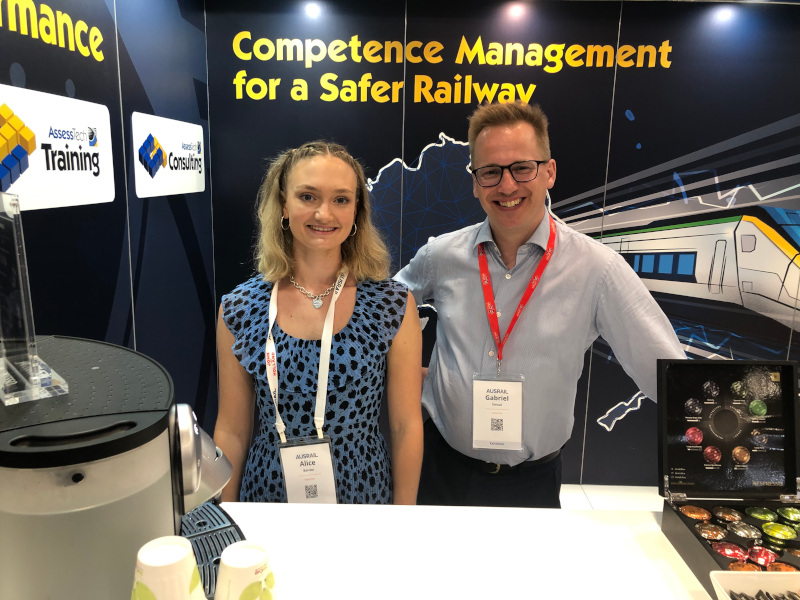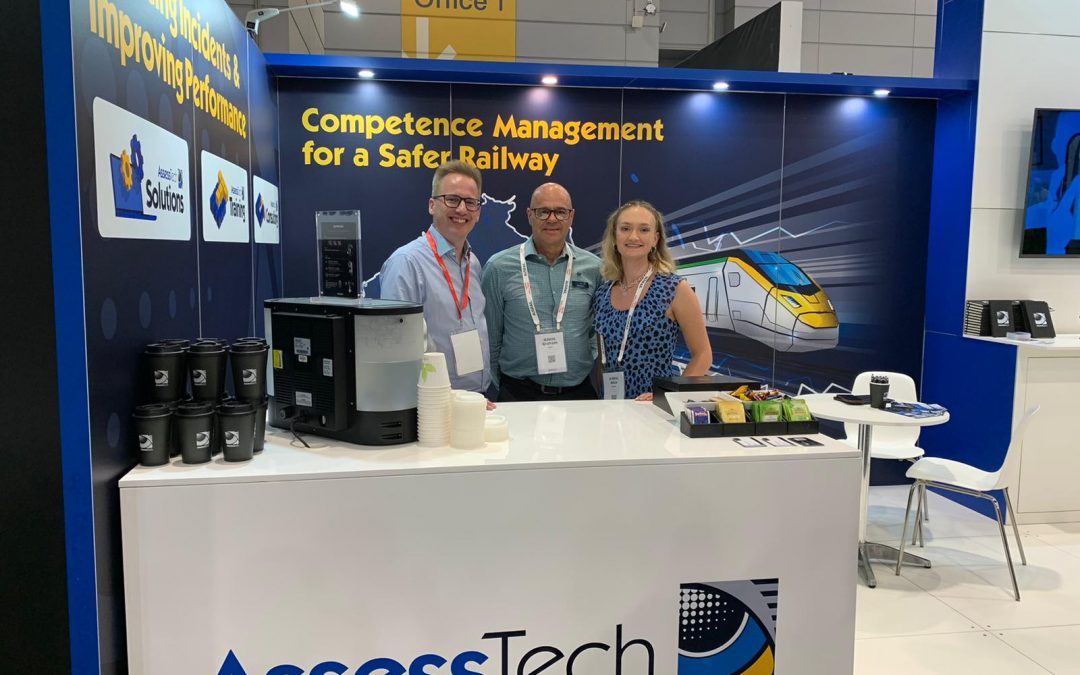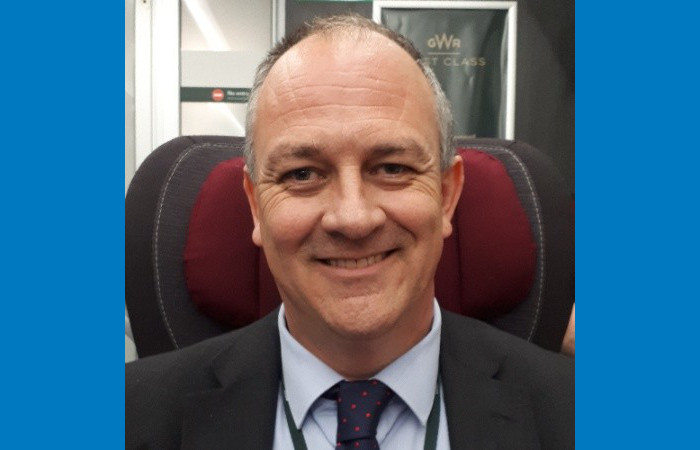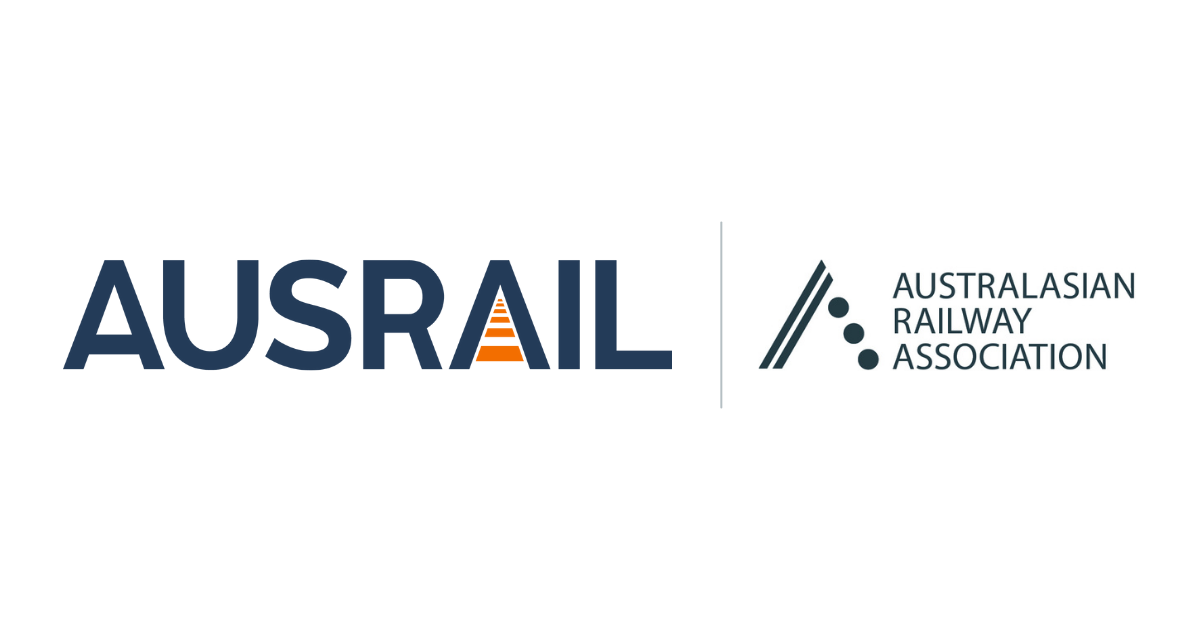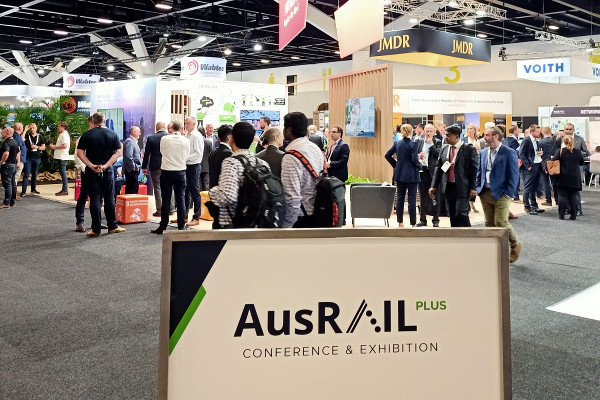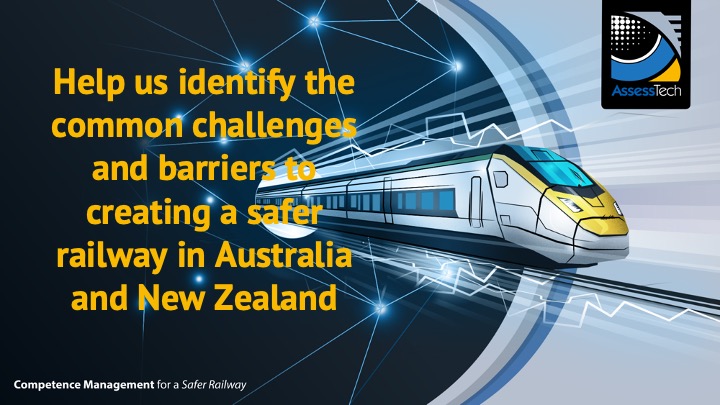Skills Gap, a Key Focus of this year’s AusRail PLUS
Taking place in Sydney earlier this month, AusRail PLUS brought together leaders and professionals from across the railway industry in their first face to face conference in 2 years and AssessTech were there!
One of the main threads running through this year’s conference is the massive challenge of attracting and retaining the right people into the industry. A report produced by the ARA confirmed expected workforce gaps of up to 70,000 skilled workers by 2023, with some areas of specialisation already experiencing shortages. In one of our recent blogs we highlighted that:
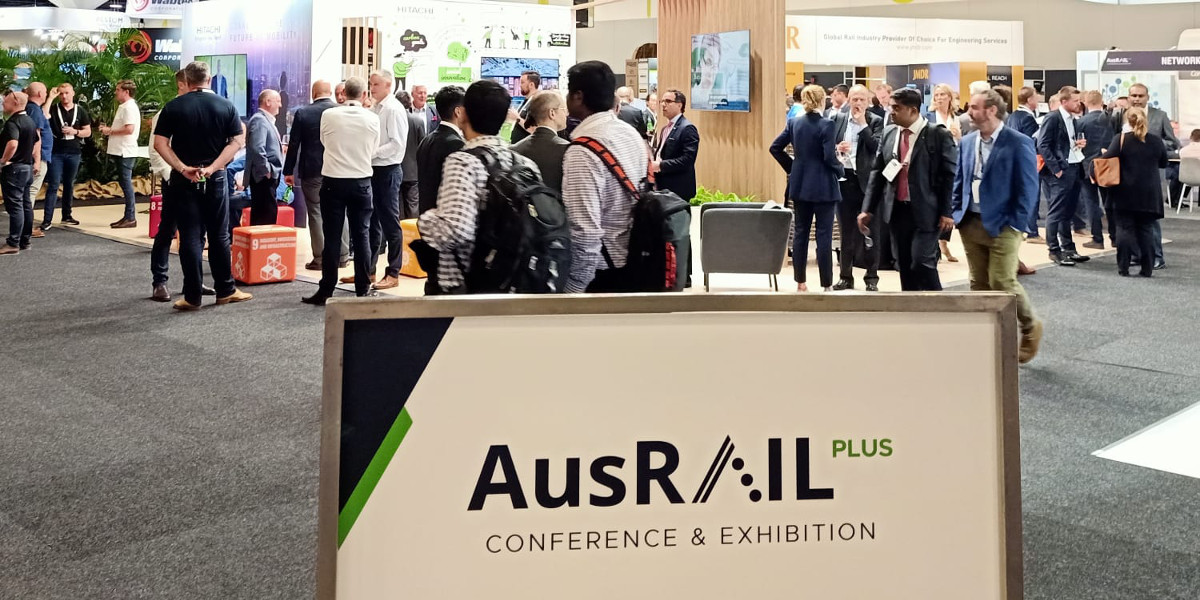
- As investment grows in new rail infrastructure and rolling stock and operations expand the number of train drivers, controllers, track workers, signalling engineers and technicians, maintenance workers, electrical technicians and tunnellers are not keeping up with this demand. The industry is also suffering a chronic shortage of trainers and assessors.
- A significant ageing workforce. Over 20 per cent of the existing workforce will retire by 2028, adding substantially to existing workforce gaps across the industry.
- A deficit in skills to operate and maintain the new rail networks once they are commissioned. This gap is also apparent in technical skills. Strategies are required to attract these skills into an industry still perceived as old and male dominated.
In a keynote talk at the conference ARA Chief Executive Officer Caroline Wilkie told delegates that attracting and retaining the right people was one of the industry’s most critical issues. In a recent article in Rail Business Daily Caroline said,
“The rail industry is in the midst of a wave of new investment that will transform our cities and towns to deliver sustainable, resilient infrastructure for decades to come,” she said.
“The skills gaps that were already evident a few years ago have only increased as new projects got underway and recent border restrictions limited the movement of skilled workers between states and from overseas.
“There is a critical need to attract, train and develop outstanding talent in our industry to support its long-term growth.”
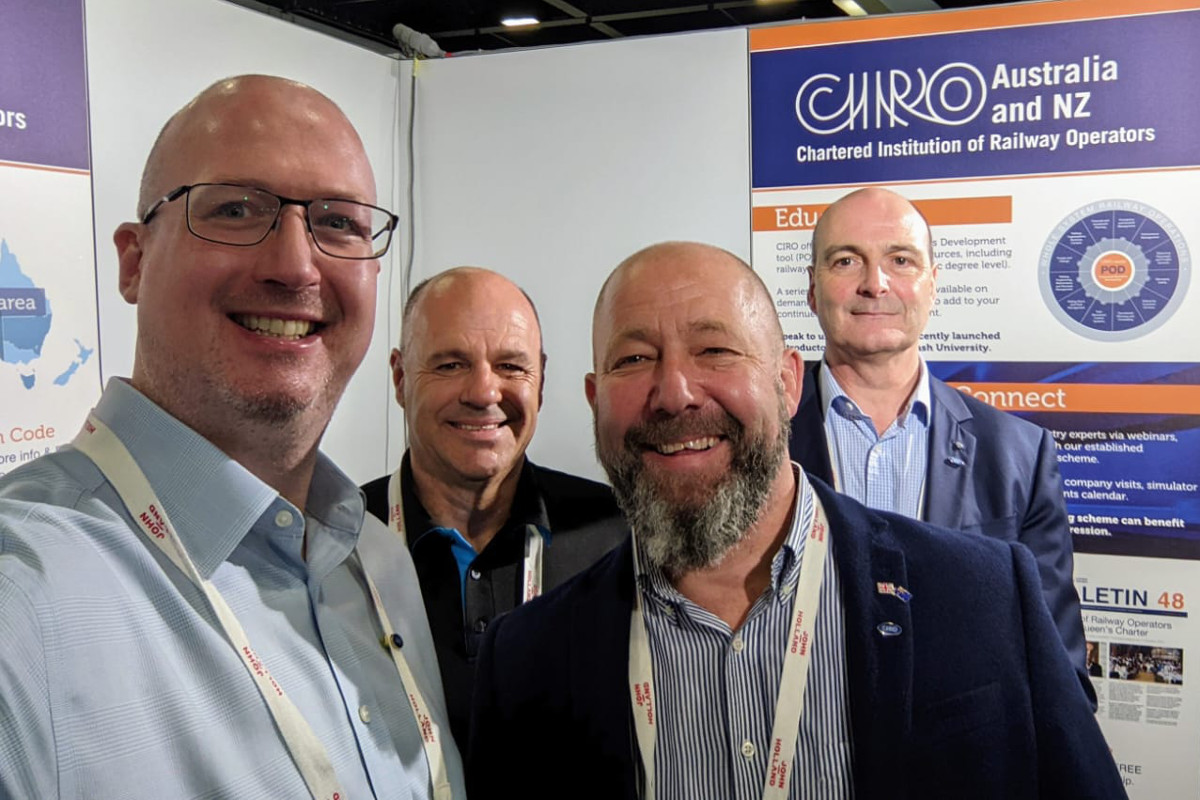
From left to right, Ken Farms, Graham Force (AssessTech) Nigel Jenkins and Huw Bridges at the CIRO Stand.
Also, in a talk hosted by the CIRO industry professionals highlighted that there are currently 70000 railway operating staff in Australia over the age of 50. As an industry we need to bring more diverse people into the industry from different industries and from disadvantaged backgrounds. With autonomous vehicles and trains becoming more widespread, we need ensure we have the skills, knowledge, and systems to manage the operational side of the railway to ensure we reduce incidents and improve safety. Extra training is required as well as new systems for example electronic competence management and familiarisation. The technology will help speed up the transfer of knowledge, making training more efficient and more manageable.
We have already started the journey to finding solutions that will help railway operators manage this transition. If you haven’t already done so, we would invite you to share your thoughts on these challenges in our survey here.





